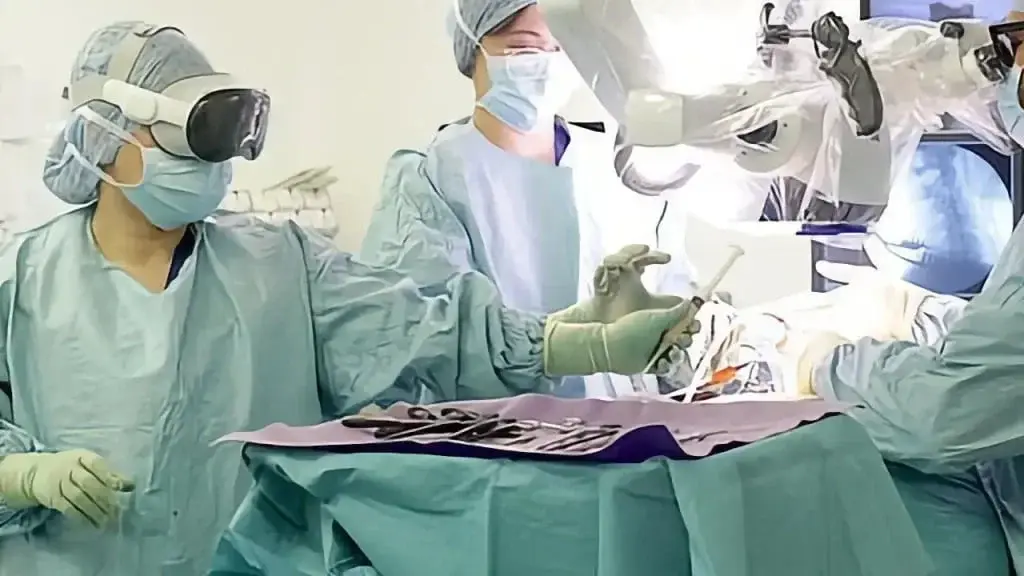The realm of surgical technology has advanced significantly with the introduction of Apple's mixed-reality headset, Vision Pro. In a recent spinal fusion surgery conducted in London, England, surgical assistant Suvi Verho traded her Microsoft HoloLens 2 for the Vision Pro – a move that yielded groundbreaking results.
Advancement in Surgical Technology
Verho, who utilized the Vision Pro headset during the procedure, hailed it as a transformative tool. Unlike conventional methods that might necessitate assistants to physically locate tools, the Vision Pro eradicates the scope for human error. Verho articulated in an interview, "Using the headset eliminates human error…it takes away the guesswork and instills confidence in the surgery."
Enhanced Surgical Experience
Verho's switch to the Vision Pro headset signals a notable progression from her previous use of the HoloLens 2 for similar surgeries. The benefits surpass mere error reduction. Dr. Syed Aftab, the operating surgeon, emphasized the potential for enhanced efficiency and knowledge transfer. "Nurses often encounter unfamiliar equipment during surgeries," Dr. Aftab pointed out. "With the Apple Vision headset, they can learn from past experiences and minimize the learning curve."
Future Implications in Surgery
Verho's testimonial and Dr. Aftab's insights signify a promising stride in integrating augmented reality (AR) into surgical procedures. The seamless visualization and accessibility of tools within the surgical field hold the promise of refining surgical accuracy, minimizing mistakes, and boosting overall efficacy. While this case study represents a singular instance, it sets the stage for further exploration into how AR technologies like Apple Vision Pro can revolutionize operating rooms and enhance patient care.


